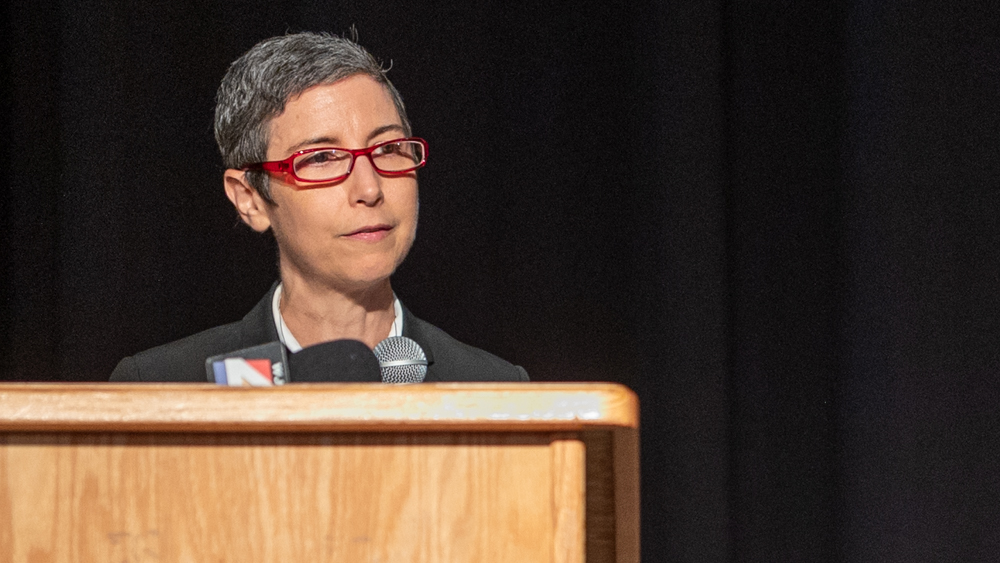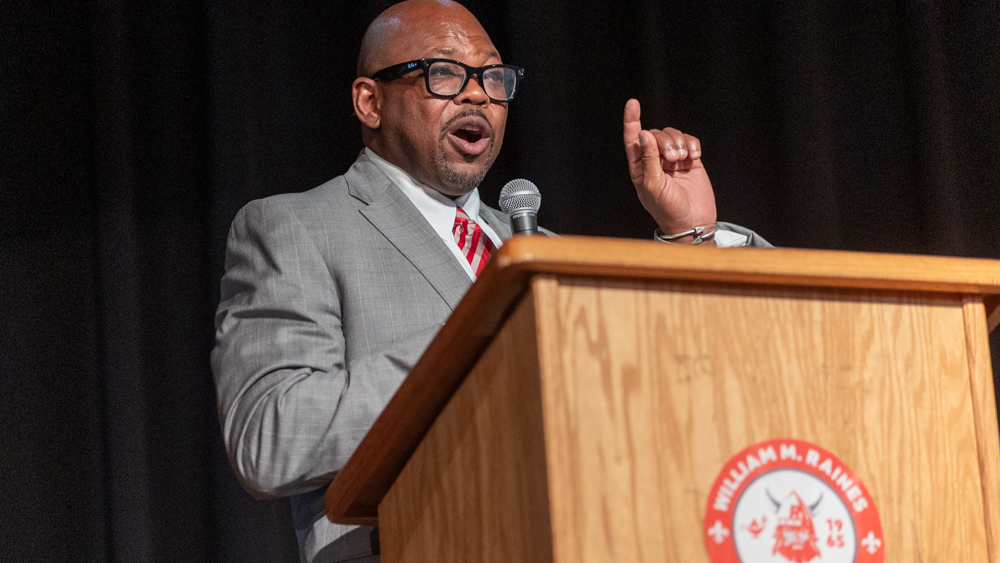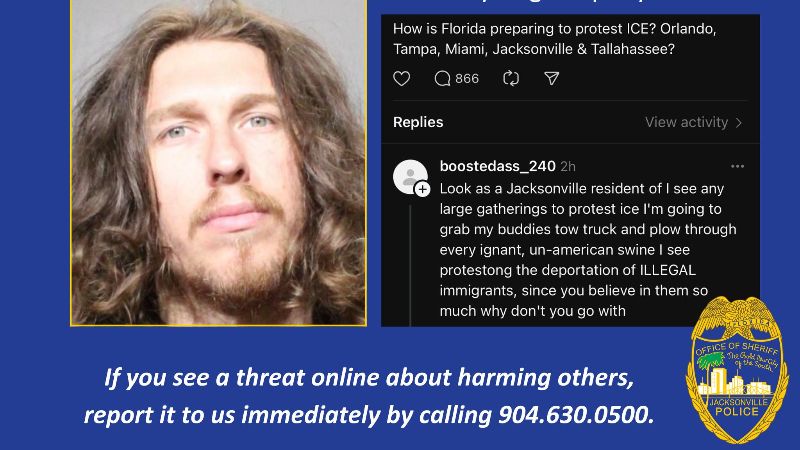United Way and LISC Jacksonville went into the heart of Moncrief to profess their commitment to homeownership.
The two nonprofits created a $5 million fund that will provide loans to developers who commit to produce housing in six Jacksonville ZIP codes.
United Way will allocate $4 million, while LISC Jacksonville will provide an additional $1 million. LISC Jacksonville will be the loan servicer and compliance monitor.
The United Way dollars are part of the $20 million gift philanthropist MacKenzie Scott donated to the United Way of Northeast Florida in 2020. In the years since the gift, the United Way has been intentional about increasing homeownership in Jacksonville in order to close wealth gaps and foster community.
Who will be affected?
Those six ZIP codes all have homeownership rates below the 58.6 overall Duval County rate.
The communities targeted include North Riverside, Moncrief, Grand Park, Durkeeville, Paxon, Biltmore and the Eastside.
Many are predominantly Black.
They are areas that were redlined in the New Deal era and have been historically under-resourced for most of the 91 years since.
Harry Williams II is a developer and pastor whose mission focuses on his native Eastside. He says the funding will provide working capital for homebuilders like himself who do not build at scale, but construct properties that provide affordable homeownership.
“I wouldn’t just throw up a cheap new home, just to say I put up a home,” says Williams, who collaborates with Jacksonville-based developer The Hardmon Co. “We are building quality homes. …Unfortunately, people think they can get quality homes by moving out of the neighborhood. We are trying to dispel that myth that you have to get out of the neighborhood to have nice homes.”
Building homeownership in the urban core
When Williams grew up Out East in the 1970s, he was the only person in his friend group whose parents owned their home.
The Eastside is not the only predominantly Black neighborhood where the homeownership rate lags behind county, state and national figures.
The 32206 ZIP code, where Williams grew up, has a 47.3% homeownership rate. Other ZIP codes where LISC and the United Way will provide this capital have a lower rate.
In the 32009 ZIP code — which includes Magnolia Gardens and Edgewood — 47.1% of residents are homeowners. In 32204, only a quarter of residents own homes.
That was the reason the announcement was made at Raines High School. LISC leaders say the location was a statement of their intent to improve communities.
At home in Duval
The U.S. Census Bureau notes that the median income in Duval County is $69,436 and 14.6% of people there live in poverty.
The Duval homeownership rate is below the statewide percentage (68.1) as well as the national percentage (65.1). The percentage of people in Duval who live in poverty is also higher than the 12.3% of Floridians who live in poverty.
In May, the United Way of Florida released a report on families that are Asset Limited, Income Constrained and Employed. The ALICE report found that 42% of Duval County households earn more than the federal poverty level but do not make enough to cover the basic cost of living.
In each of the six ZIP codes where this homeownership initiative is focused, more than half of the people who are employed cannot make ends meet.
United Way of Northeast Florida officials say the number of people who are employed — yet unable to make ends meet — is rising in Duval County. The percentage is not increasing because Duval’s overall growth is taking place at a faster rate.
Developers like Mattamy Homes, Dream Finders Homes, D.R. Horton and Jacksonville-based JWB Real Estate Capital – all of whom have a presence in Northeast Florida – either have access to major financial institutions or enough cash on hand to finance their homebuilding projects.
That is not the case for people like Williams. He says stigmas made lenders believe there are not qualified and capable microdevelopers who can convert funding into homes in predominantly Black or Hispanic neighborhoods.
Solutions to homeownership gaps
United Way CEO Melanie Patz says that reality is why the organization leaned on community groups and private businesses to understand where the need was greatest.
The answer: fostering homeownership in order for homeowners to build wealth.

That work included providing home repairs for 90 properties within the urban core and resolving 330 heirs property cases.
In Duval County, home prices have dipped over the last year — from an average of $345,000 in May 2024 to $329,000. The Northeast Florida Association of Realtors reported earlier this week that the home inventory in Duval has increased 25% over the past year.
Nevertheless, Patz says there is a need for affordable housing where people who earn between $55,000 and $83,000 can buy a home.
“The economics are such that you make more money off of building big (homes) and high-end homes,” Patz says. “Those are not homes that folks that are between 80% and 120% of the area median income can afford. So, there haven’t been homes available for them to purchase.
“That is why we want this capital going to the developers who don’t typically have access to mainstream capital. (We want) to be able to get the dollars that they need to build the homes for folks who have this dream of homeownership, but there just hasn’t been development in their neighborhood for them to be able to purchase a home.”
Making space for developers, builders and dreams
In order to qualify for the United Way and LISC Jacksonville dollars, a developer must commit to building three owner-occupied homes at a time.
Rebecca Williams is founder of Fruit of Barren Trees, a development firm that built or renovated properties in Brentwood and Moncrief. She is not related to Harry Williams, yet both are Jacksonville natives who want to improve their hometown by helping others achieve homeownership.
Rebecca Williams says she would like for the fund to provide space for microdevelopers and small builders who may not have the capacity to build three homes at once.
“If we asked every developer and builder to build just one house and fund them they money to do it simultaneously, we would have 100 homes hit the market for affordable housing,” Rebecca Williams says. “What’s hindering that from happening is our culture of gatekeeping the opportunity to build with new faces and new people.”
That is the culture that Irvin “Pedro” Cohen seeks to break. For the LISC Jacksonville CEO, the development fund is one of the biggest achievements of his professional career.
Wednesday was the first time since his Senior Day celebration in 1987 that Cohen was on the stage inside the Raines High auditorium. His maroon and silver tie was as intentional as LISC’s commitment to provide equity in Northwest Jacksonville.
“What we are doing, in my mind is — first and foremost — we are disrupting the gravitational pull that poverty has on you or has on communities,” Cohen says. “And, we’re doing that through the very first step of homeownership.”
“What I’m trying to do is reengineer that process. When you own a home, you just look at life different. It becomes your place. When you’re renting a home, you don’t think about it as consequentially. … When you own something, that means you are taking root in it.”







